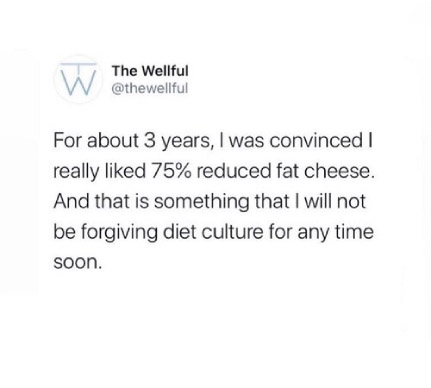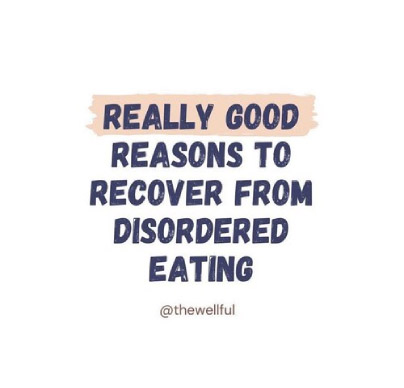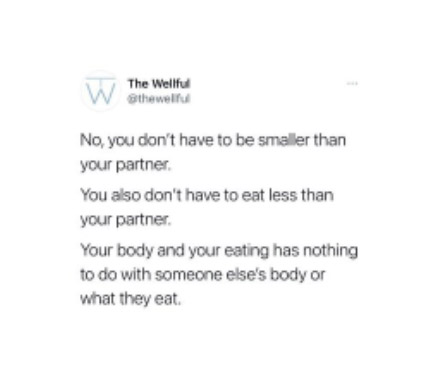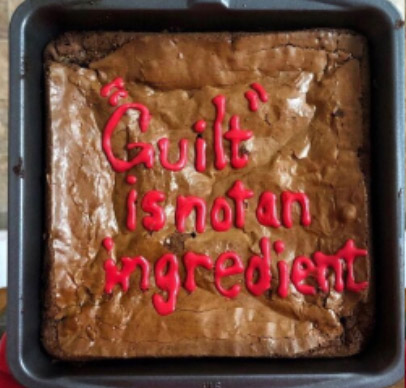“Healthy eating” is something a lot of people strive for, but can it ever become too much? As it turns out, yes. The desire to eat as “healthy” as possible can become unhealthy if it’s taken too far. Orthorexia nervosa is a term that has become increasingly common as more and more people strive for a “healthy lifestyle” and we gain awareness around healthism, social determinants of health and eating disorders. While a focus on nutrition and taking care of our bodies is undoubtedly important, there’s a difference between your health being something important to you and choosing to prioritize it in certain ways, and obsessing over it.
What is Orthorexia?
Orthorexia is an eating disorder that is characterized by an obsession with healthy eating and food purity. Unlike other eating disorders like bulimia or anorexia, it is not necessarily characterized by a desire to lose weight or achieve a certain body shape. Instead, it is fueled by an overwhelming need to eat only the “purest” and most nutritious foods, often to the point of extreme restriction and avoidance of certain food groups. This might mean fearing certain foods or food groups, feeling pressure to eat in a specific way like clean eating.
When Does an Obsession with Health Become Dangerous?
While it’s fine to have a genuine interest in healthy eating and want to nourish your body with nutritious foods, going to the extreme is problematic. When this interest turns into an obsession and starts affecting our daily lives, relationships, and overall well-being, it becomes a cause for concern. I always hear from a lot of folks who resonate with this instagram reel I made about the slippery slope of an interest in health to feelings obsessed with health.
The Fine Line between Healthy Eating and Obsession
One of the key differences between healthy eating and orthorexia is the flexibility in food choices. Healthy eating allows for balance and variety; at The Wellful, we support individuals in developing a relationship with food in which all foods fit. Obsession around food or eating “perfectly”, on the other hand, promises health but often leaves one with an obsession around health rather than health itself. It promotes strict rules and regulations around food, often leading to anxiety, guilt, and a diminished quality of life.
When you find yourself obsessing over the quality of food, spending excessive amounts of time researching, planning, and preparing meals, and feeling anxious or guilty when deviating from your self-imposed dietary rules, it may be a sign that your healthy eating habits have escalated into orthorexia.
Signs and Symptoms of Orthorexia
While every person’s experience with orthorexia may vary – and even if you don’t meet diagnosis criteria you can still benefit from support – there are common signs and symptoms to be aware of:
- Obsessive concern with the quality and purity of food
- Avoidance of certain food groups or categories (e.g., carbohydrates, fats, sugar etc.)
- Significant anxiety or guilt when unable to adhere to self-imposed dietary rules
- Extreme restrictions and limitations on food choices
- Increased time and energy spent on meal planning, preparation, and research
- Difficulty eating out or enjoying social occasions involving food
- Withdrawal from social activities or relationships due to dietary restrictions
- Overemphasis on physical health and appearance
- Denial or justification of the extreme behaviors and beliefs
Recovering from orthorexia involves developing a healthier relationship with food and adopting balanced, sustainable eating habits. Here are some steps to guide you towards a more sustainable way of life:
Seek Professional Help
If you feel like your interest in health has taken an unhealthy turn and suspect that it could be orthorexia – or food thoughts are taking up more than 25% of your daily headspace – it’s a good idea to seek support from a qualified professional who specializes in eating disorders. Registered dietitians like myself can provide you with the necessary guidance and tools to navigate your recovery journey.
Check in On Your Food Rules
Take a step back and question the beliefs and rules you have around food. Ask yourself where these rules came from. What evidence do you have to support that rule? Do these rules apply for everyone, or just you? Do these rules allow you to live a full, energized, full life? Working with an eating disorder registered dietitian can help you to reframe food thoughts, understand how food works in your body and identify a pattern of eating that can help support your physical, mental, and emotional well-being.
Practice Intuitive Eating
Depending on where you are in your relationship with food, intuitive eating can be a helpful practice or target to work towards. Reconnect with your body’s natural hunger and fullness cues by practicing intuitive eating. Listen to your body and do your best to give it what it needs. When you learn to trust yourself and trust your body, you know that you’ll make choices that honor both your health and your happiness. If this sounds scary or like something you’re not sure how to do, working with a registered dietitian for orthorexia may help.
Embrace Variety and Moderation
Aim for a diverse diet that includes a variety of foods from all food groups. Remember that the key is balance and overall dietary patterns, rather than focusing on individual food choices.
Recovering from orthorexia is a journey that requires patience, self-compassion, and perseverance. There are several elements that may help you get there. Some strategies to help you find food freedom include…
Letting Go of Perfection
Release yourself from the quest for perfection and embrace the idea that progress, not perfection, is what matters. Strive for progress in your relationship with food and your overall well-being and celebrate each small step towards a healthier mindset. This can be work that you do on your own, with the support of your therapist, with your dietitian – and likely, all three.
Focusing on Self-Care
Shift your focus from external measures of health, such as appearance or weight, to self-care and self-compassion. Prioritize activities that bring you joy, reduce stress, and enhance your overall well-being, such as exercise, spending time in nature, or engaging in creative outlets.
Surrounding Yourself with Support
Build a network of supportive individuals who understand and validate your journey towards recovery. This can include friends, family, or even online communities dedicated to promoting a healthy and balanced approach to food and body image. Virtual or in-person support groups can offer community and connection and remind you that you are not alone in these feelings.
Seeking Professional Help
There’s absolutely nothing wrong with asking for help for orthorexia. In fact, doing so is a sign of strength; it’s a signal to yourself that you’re putting your own true wellness first. Professionals like therapists and registered dietitians who specialize in eating disorders can help you establish a better relationship with food and your body, and can work with you on the road towards recovery.
Remember, you are not alone in this journey. With the right support and a commitment to healing, you can recover from orthorexia and find true food freedom, allowing you to live a life of balance, joy, and well-being.
Break Free from Orthorexia with The Wellful
Do you obsess over “healthy” eating, but still don’t feel well? We understand. The Wellful provides compassionate nutrition therapy to help you break free from a restrictive mindset. Reclaim your right to live fully each and every day.
Get started when you schedule a free consultation with Brenna today. Contact The Wellful at 925-725-2761 today to begin your journey of empowerment.











